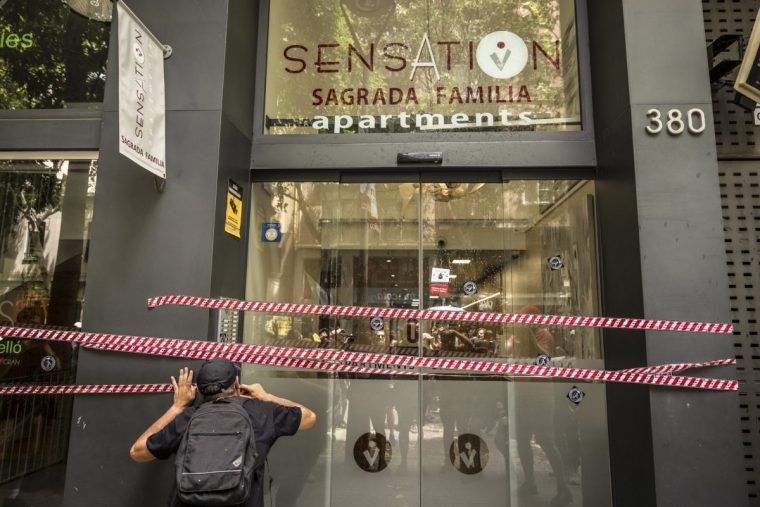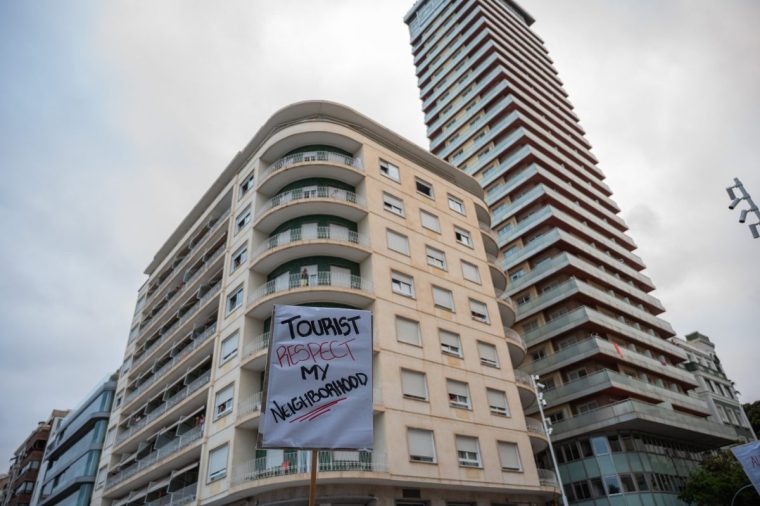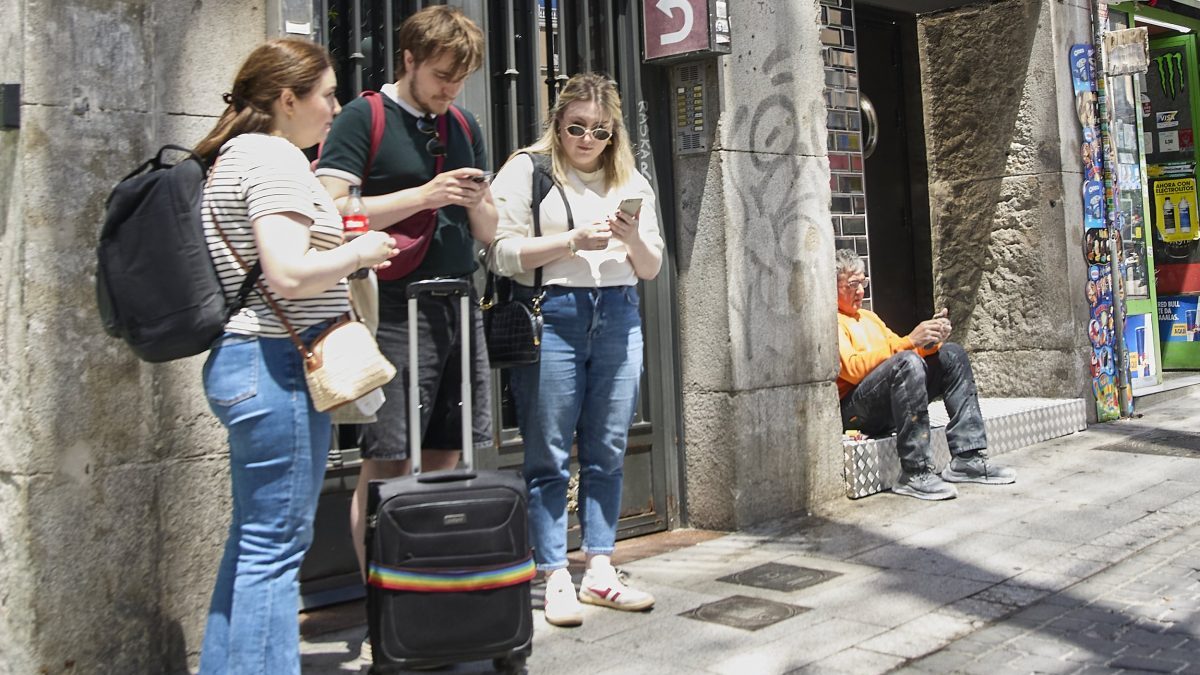Spain has released a map revealing the country’s worst offenders for holiday lets
MADRID – Tourist flats now take up one in three houses in some of Spain’s most popular resorts, according to data that reveals the country’s hotspots for short-term holiday lets.
Spain had just over 397,000 tourist lettings last year, compared with 321,000 five years ago during the pandemic — a 24 per cent increase, according to data from the Spanish National Statistics Institute, which has mapped every area in the country where tourists can rent out Airbnb-style flats.
The highest numbers are in coastal areas like Las Palmas, the Balearic Islands, Girona, Tarragona, Tenerife, Lleida, Cádiz, Málaga and Alicante.
The boom in tourist flats in Spain in recent years has prompted backlash, with accusations that it is driving a housing crisis in the country. Critics of Airbnb and other lettings agencies claim that the rise of these platforms has priced out local people and sparked protests against overtourism across Spain.
 A demonstrator applies a tape cordon to the entrance of tourist apartments during a protest in Barcelona, Spain last month (Photo: Angel Garcia/Bloomberg/Getty)
A demonstrator applies a tape cordon to the entrance of tourist apartments during a protest in Barcelona, Spain last month (Photo: Angel Garcia/Bloomberg/Getty)
Nationally, tourist flats represent only 1.38 per cent of all housing in Spain, but in some cities the number of holiday lets rises to over 30 per cent of all accommodation.
One such neighbourhood is Carret y Alamos in Malaga, where tourist flats account for 32.5 per cent of all housing.
In another area in the same city, La Merced, 27.4 per cent of all housing is now tourist flats.
In Cádiz, about 22 per cent of all housing is tourist lets. In Cordoba, Granada and Seville, more than 10 per cent is dedicated to tourist lets.
Kike España, an urban investigator who was forced to move out of his city-centre flat in Málaga because it was turned into a tourist flat, said such short-term lets pushed up prices beyond the reach of local people.
 A placard against tourists in front of a hotel building and vacation apartments in Alicante (Photo: Marcos del Mazo/LightRocket/Getty)
A placard against tourists in front of a hotel building and vacation apartments in Alicante (Photo: Marcos del Mazo/LightRocket/Getty)
“This is causing a social problem. Local people can no longer afford to live here. The character of the local shops changes as they cater to only tourists, and there is a transient feel to the place. It is no longer a neighbourhood,” he told The i Paper.
Spain’s left-wing government has been trying to restrict the number of homes rented to tourists after a post-pandemic boom in visitors, which has prompted protests in cities and resorts.
The measures seek to push landlords towards longer-term rentals to residents amid a countrywide deficit of 450,000 homes, according to figures from the Bank of Spain.
In Barcelona, the mayor banned all permits for short-term rentals by 2028, while Málaga, Madrid and the Canary Islands are restricting new permits.
Last month, protesters in Barcelona, who are calling for an end to the “touristification” of the city, sprayed holidaymakers with water pistols, set off firecrackers and taped up a hotel.
Marian Muro, director general of Apartur Association, which represents owners of tourist flats in Barcelona, said her organisation was challenging the threatened ban on tourist flats at the European Commission.
“The 10,000 tourist flats only represent 1 per cent of all housing in Barcelona. There are 12,000 more flats which are empty or are used for business,” she told The i Paper.
“This ban will not happen. It is a populist measure. But suppose it did, do you suppose that the owners of these flats would all rent them out to long-term residents? No. They will do what they want with them. It would damage the city’s ability to put on congresses and other events.”
Tourist flats make up 40 per cent of all accommodation for holidaymakers in Barcelona.
